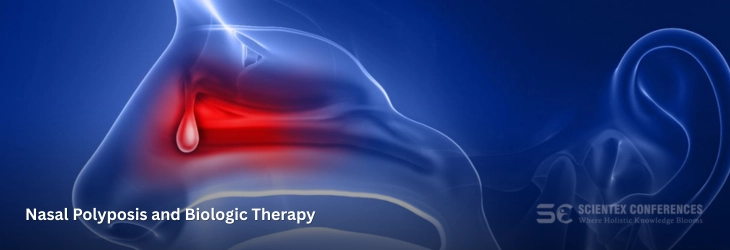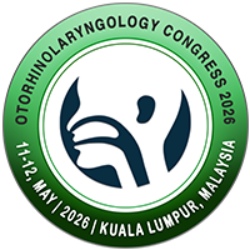Track: Nasal Polyposis and Biologic Therapy

Session Overview:
This session aims to provide a comprehensive understanding of nasal polyposis and biologic therapies, focusing on the causes, symptoms, and treatment options for this chronic inflammatory condition of the nasal passages. It will cover the pathophysiology of nasal polyps, their impact on quality of life, and the limitations of conventional treatments such as corticosteroids and surgery. The session will also explore the role of biologic therapies, including monoclonal antibodies, that target specific inflammatory pathways to reduce polyp size and improve symptoms.
Recent Development:
Recent advancements in understanding and managing nasal polyposis and biologic therapies have transformed treatment approaches for patients with chronic rhinosinusitis with nasal polyps (CRSwNP), especially those unresponsive to conventional therapy. These therapies have been shown to significantly reduce polyp size, improve nasal airflow, and decrease the need for repeated surgeries or systemic steroids. Ongoing research is exploring new biomarkers to better predict treatment response and guide person alized therapy. These developments mark a shift toward precision medicine in managing nasal polyposis.
SubTracks:
Chronic Rhinosinusitis with Nasal Polyps:
Chronic rhinosinusitis with nasal polyps is a long-term inflammatory condition of the nasal and sinus mucosa characterized by the growth of benign polyps. It often leads to persistent nasal congestion, facial pressure, loss of smell, and a high rate of recurrence despite medical or surgical treatment.
Nasal Obstruction:
Nasal obstruction refers to the partial or complete blockage of nasal airflow, commonly caused by inflammation, structural abnormalities, or nasal polyps. It significantly affects breathing, sleep quality, and overall quality of life in patients with nasal polyposis.
Loss of Smell:
Anosmia, or loss of smell, is a common symptom in patients with nasal polyps due to inflammation and physical blockage of the olfactory cleft. It can severely impact taste perception and daily functioning, often being one of the first and most persistent symptoms.
Eosinophilic Inflammation:
Eosinophilic inflammation is a key driver of nasal polyposis, involving the accumulation of eosinophils—a type of white blood cell—in the nasal and sinus tissues. This type of inflammation is often associated with severe disease, frequent relapses, and a strong response to biologic therapies.
Corticosteroids:
Corticosteroids are the first-line treatment for nasal polyps, helping to reduce inflammation and polyp size. While topical corticosteroids are preferred for long-term use, systemic steroids are used for short-term relief but may cause significant side effects with prolonged use.
Scientific Highlights
- Anatomical and Physiological Disorders of ENT
- Lung Disease Airway Issues
- ENT Infections and allergies
- New treatment Advances in Otolaryngology
- Ear & Nose plastic surgery
- Endoscopic and laparoscopic ENT surgery
- Craniofacial & Facial surgery
- Otology and Neurotology
- ENT Microsurgery
- COVID 19 and ENT
- Pediatric Otolaryngology
- Speech and Swallowing Disorders
- Head and Neck Surgery
- Airway Management & Surgery
- ENT Allergies & Immunotherapy
- Surgical Techniques in ENT
- Nasal Polyposis and Biologic Therapy
- Advances in Cochlear Implants
- Recent Advances in Otorhinolaryngology
- Vertigo and Balance Disorders


